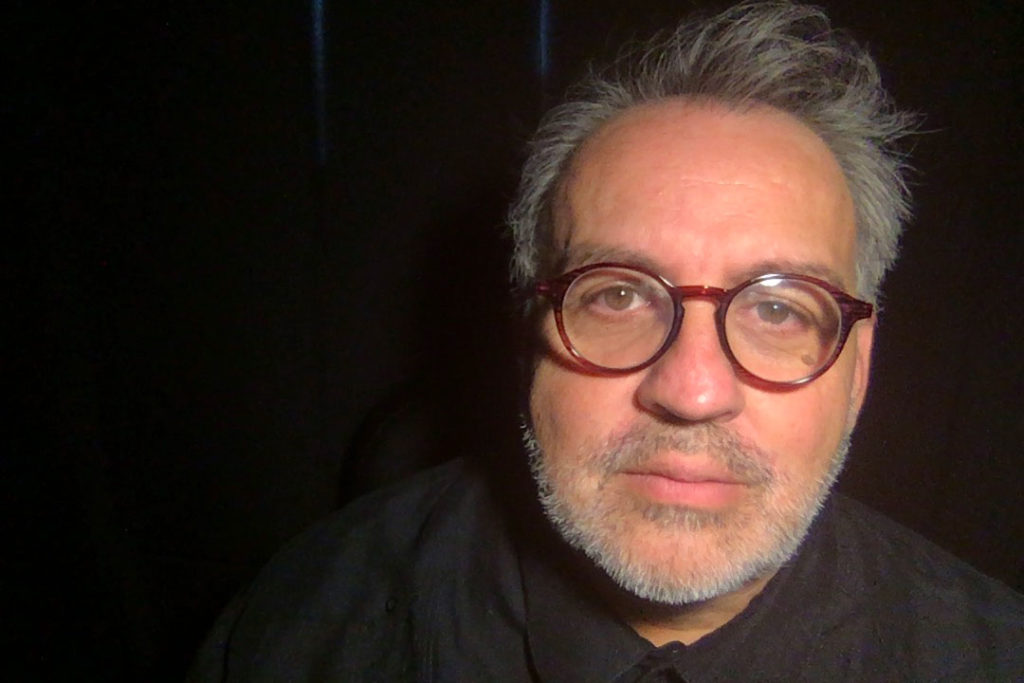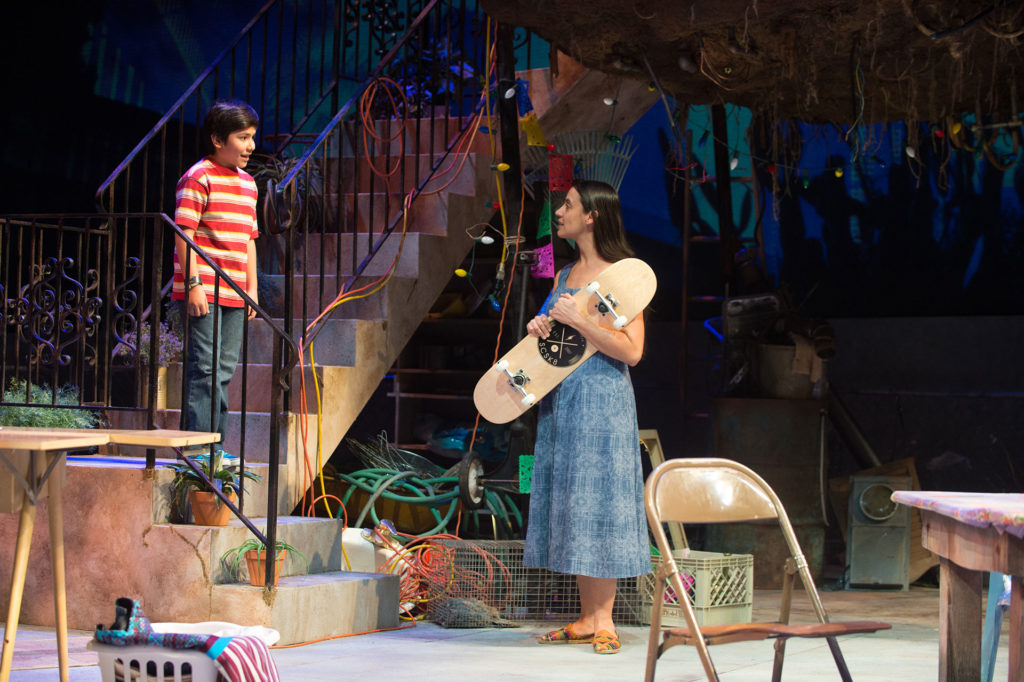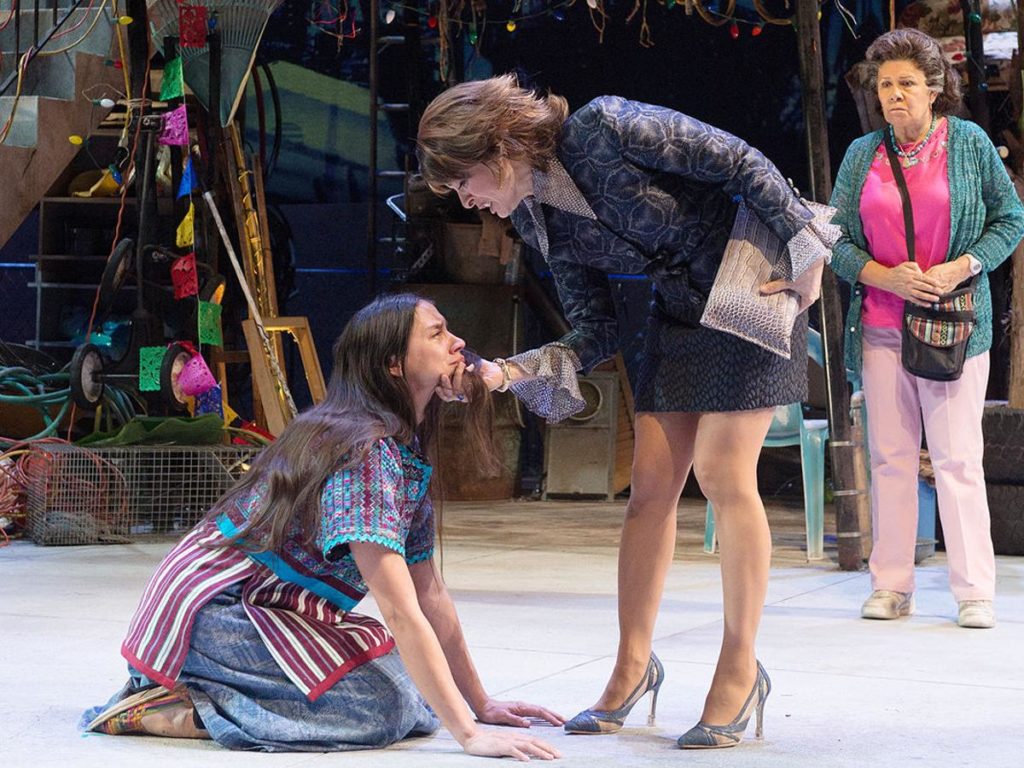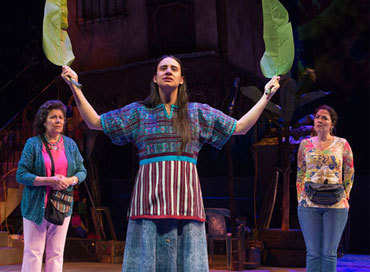
Biography
Luis Alfaro is a Chicano playwright based in the Los Angeles area. His work focuses on the Chicano barrios, neighborhoods/communities, in the Los Angeles area and his works range from adaptations of Greek tragedies to plays with themes about the queer and Latinx communities. His plays include Oedipus El Rey, Electricidad, Delano, Straight as a Line, No Holds Barrio, and Body of Faith. His works have been produced most notably at the Magic Theatre, Victory Gardens Theatre, Kirk Douglas Theatre, Public Theatre, Oregon Shakespeare Festival, South Coast Repertory, and Dallas Theater Center. Alfaro graduated from Woodrow Wilson High School, and he received playwriting training from the legendary María Irene Fornés. Alfaro was a recipient of the MacArthur Foundation Fellowship (aka the genius grant) and was the first playwright in-residence in the 83 years of the Oregon Shakespeare Festival from 2013-2019.
Career Highlight
Most recently, Luis Alfaro was just selected as a member of the Latinx Playwrights “Circle of Imaginistas” at the Los Angeles Theatre Center in 2021.
https://www.latinotheaterco.org/imaginistas
Mojada: A Medea in Los Angeles
- Breakdown:
- 6 Latinx; 4W and 2M
- Synopsis:
- Based on the Greek tragedy Medea, Mojada takes place in the barrio in Los Angeles with a group of undocumented immigrants who faced immense struggle and trauma to make it across the border and start their new lives in the US. Medea wrestles with keeping her culture and language alive as others push back and promote this idea of Americanness that involves conforming to societal norms. Chisme (i.e., gossip) runs rampant through the barrio and nothing gets through Josefina, who must be the bearer of bad news that Hason, Medea’s husband, intends to marry Armida, his boss and the owner to the land Medea’s house is on. Armida represents the immigrant who has achieved success in America but exploits her power over the immigrants whose position she was once in. The struggle for power and the desire to feel welcome in this nation by receiving citizenship drives the main conflict in this play: where the line is drawn in terms of leaving your people behind. The play ends with Medea being drawn to use her skill of supernatural sewing to create a garment to kill Armida and finally kills her own son in one last act of desperation.
- Development/Production History:
- World premiere at the Magic Theatre in San Francisco in 2012 under the title Bruja
- Regional Premiere at Victory Gardens Theater in Chicago under the new name Mojada in 2013
- Produced at Getty Villa in Los Angeles in 2015
- Produced at the Oregon Shakespeare Festival in 2017
- Produced Off-Broadway at the Public Theatre in 2019
- Weblink to purchase play:
- Photos:



- Plays
- Straight as a Line (1998)
- Electricidad (2003)
- Body of Faith (2003)
- No Holds Barrio (2004)
- Oedipus El Rey (2010)
- St. Jude (2013)
- Delano (2015)
- Bibliography
- Levy, Rob. “BWW Review: The Rep Raises the Bar in the Barrio with Mojada: A Medea in Los Angeles.” BroadwayWorld, BroadwayWorld, 14 Jan. 2020, https://www.broadwayworld.com/st-louis/article/BWW-Review-The-Rep-Raise-the-Bar-in-the-Barrio-with-MOJADA-A-MEDEA-IN-LOS-ANGELES-20200114.
- Olivas, Daniel A. “Four Questions for Luis Alfaro Regarding His ‘Greek Trilogy.’” Los Angeles Review of Books, Los Angeles Review of Books, 25 May 2021, https://lareviewofbooks.org/article/four-questions-for-luis-alfaro-regarding-his-greek-trilogy/.
- Pellegrino, Isabel. “Bringing What Is in the Dark to Light.” National Endowment for the Arts, National Endowment for the Arts, 3 Nov. 2018, https://www.arts.gov/stories/magazine/2018/3/pushing-boundaries-look-visionary-approaches-arts/bringing-what-dark-light.
- Pollack-Pelzner, Daniel. “Rewriting Greek Tragedies as Immigrant Stories.” The New York Times, The New York Times, 12 July 2019, https://www.nytimes.com/2019/07/12/theater/luis-alfaro-mojada-public-theater.html.
- Web Resources
Reflection on Contribution to Anti-Racist Theatre
Mojada: A Medea in Los Angeles is a unique chance to immerse oneself into the experience of undocumented immigrants and the multifaceted ways these immigrants experience the United States and the challenges that present themselves. Doing a deep dive into the oppressive systems in the United States that always seek to promote limiting immigrants, this play offers a chance to examine if people who escape and ultimately join the system are any better than the oppressors keeping the system in place. Furthermore, this play explores the idea that people immigrate to start their lives over because the place they came from is not giving them what they need to survive. The idea of having to become a new person does ring true for some people but this play offers this question: “Is the real goal to create a new you necessary for survival?” All the sacrifices that were made along the path to immigrate never warrant people to forget where they came from, to change their names, alter how they talk, or even switch what soccer team they need to cheer for. Anti-racist theatre is the willingness to look introspectively at your ethnic or racial group and the nuances that accompany them and Mojada accomplishes this by exemplifying the trauma and horror that can accompany crossing the border and promoting commentary that culture should not sacrificed because you move to a new country.
Compiled by Timothy Merkle; Film, Television, and Theatre, Applied and Computation Mathematics and Statistics, Musical Theatre. Class of 2023.